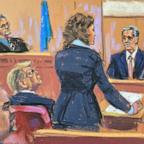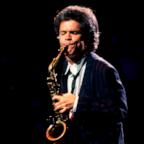Souter emotional, wry in 'a sort of farewell'
PHILADELPHIA -- In Supreme Court Justice David Souter's first public appearance since announcing his retirement, he spoke philosophically Tuesday about a judge's place in society and how quickly one may fade into history.
"For most of us, the very best work that we do sinks into the stream very quickly," he said in a 15-minute address to the 3rd Circuit Judicial Conference. "We have to find satisfaction in being part of the great stream."
Souter, 69, was, by turns, emotional and wry.
He is the justice who oversees emergency appeals from the 3rd Circuit — which covers Pennsylvania, New Jersey, Delaware and the Virgin Islands — and noted he has attended the circuit's annual conference for nearly 19 years.
"I didn't intend for (Tuesday's appearance) to be a sort of farewell," he said. Then, referring to his initial belief that his decision to retire this summer would stay under wraps longer, he said to laughter, "I swear to you I was not the source of the leak."
Souter, a 1990 appointee of President George H.W. Bush who had recently begun privately revealing that he intended to retire, made it official when that news became public Thursday night. Souter spoke by telephone with President Obama midday Friday.
Afterward, Obama praised Souter. "He came to the bench with no particular ideology," the president said. "He never sought to promote a political agenda. And he consistently defied labels and rejected absolutes."
"He approached judging as he approaches life," Obama continued, "with a feverish work ethic and good sense of humor, with integrity."
In Tuesday's luncheon speech in a hotel ballroom, Souter said, "It's impossible not to be doing a mental reckoning of sorts." The erudite justice then proceeded to invoke the words of great writers and judges, including Learned Hand, a leading 20th-century legal thinker whose career as a federal judge in New York spanned 52 years.
Souter, who insisted that no cameras or tape recorders be allowed at the speech, described himself as a judicial craftsman of sorts, one who aims to do something worthwhile and do it well. "If we're honest," he said, "we have to realize that the significance (of one's work) often is slight."




